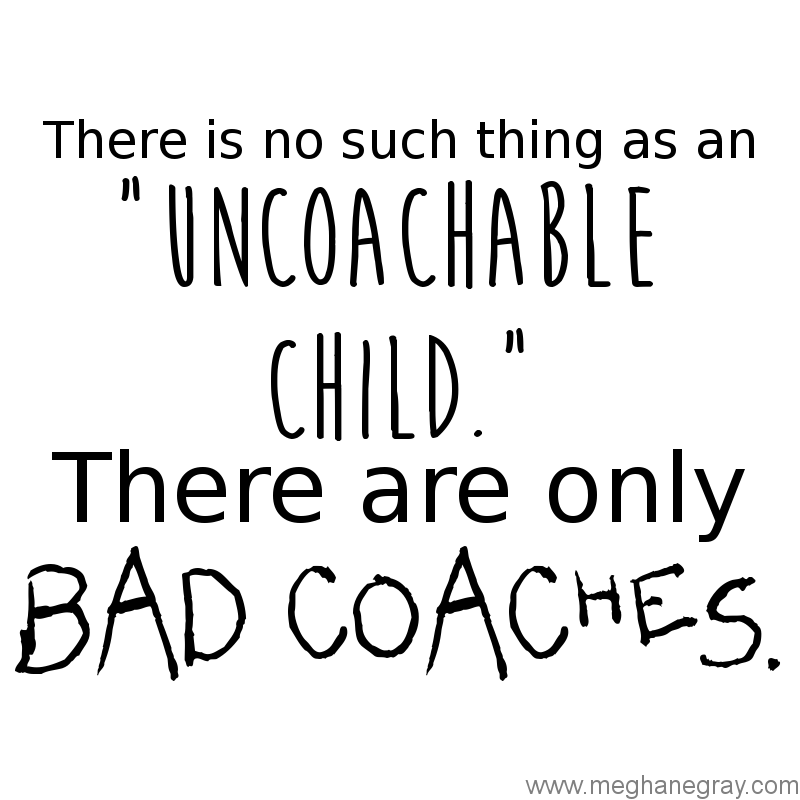You’ve probably seen the meme about coachable kids. It’s been making the rounds lately, and the upshot is that uncoachable kids won’t ever amount to much. It’s attributed to Patrick Murphy-an Alabama softball coach, and, no doubt, a noted child development expert. (No? You surprise me.) I give Mr. Murphy points for saying it’s ok to expect a lot from kids, but I take issue with the underlying assumption that there is such a thing as an “uncoachable” kid.
For starters, kids sometimes have challenges, disadvantages, or disabilities, but with or without those things, there is one thing a lot of them DO NOT have, and that is agency. Kids don’t get to call a lot of the shots in their own lives. Someone else decides when they’ll go to bed, when they’ll get up, what they’ll eat and usually when they’ll eat it. Someone else selected the clothes in their closets. Someone has to drive them where they go, and pay their way. There are exceptions, of course, but as a general rule, kids are dependent on adults for both the necessities and the luxuries of life- it’s rare they can access them 100% by themselves.
That means that a lot of times, the one and only person on the field who actually decided to be there entirely of their own free will is… the coach. As an adult, if I sign up for something and the coach and I don’t connect, I have power in that relationship. I am the one who signs the checks, and if I want to end the relationship and find another team, or another sport, I can. Kids can’t. So the minute the coach looks at that kid and says, “this kid is uncoachable” is the minute the coach should look in the mirror, and repeat three times: “I am failing this child.”

Because all kids WANT to learn. They might not want to learn what we want them to learn at the exact moment we want them to learn it, but they WANT learning. They can’t help it. And that kid who is labelled “uncoachable” may have problems with executive function or emotional regulation. She might have problems at home. Or he might just not have mastered the art of getting it together on demand… because he’s a child. These children have unlimited potential, just like the kids who are better at looking attentive and seeming eager to participate. Labeling that kid “uncoachable” sounds an awful lot like quitting on a child. It lowers the bar on what to expect from that child to zero.
That kid is NOT uncoachable. You are just bad at coaching them.
Any coach who finds him or herself thinking that a child cannot be taught, regardless of sport, needs to take a step back. The person with the responsibility to figure out how to make that relationship work is the COACH, not the child. It may be that you are not the right coach for that kid, or that this activity isn’t the right one to make the most of the child’s gifts. Or it could be that you just need better ideas about how to teach that kid. When that happens, it’s time to go and read. It’s time to consult with wiser heads, to think outside the box, and to ask other people for insight until you find that better idea. It’s out there. I believe in you. I know you are not a bad coach, nor are you “uncoachable” yourself.
And if you are my student, my commitment to you is this. There IS a way for me to teach you, and I will do my very best to find it. If it turns out that I am not the right coach for you, I will be very clear about the fact that the problem is mine, not yours.